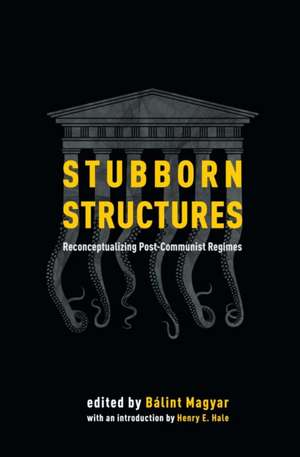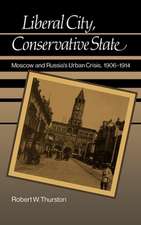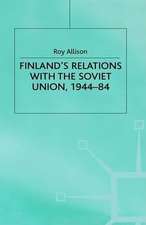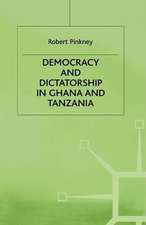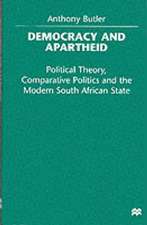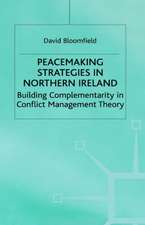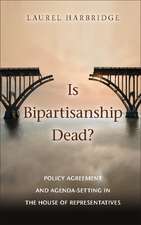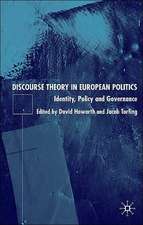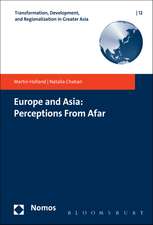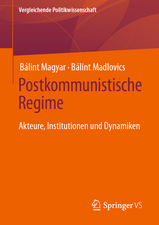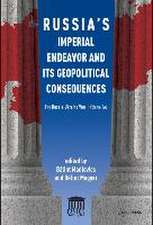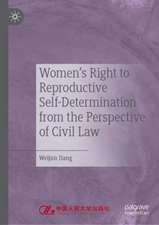Stubborn Structures: Reconceptualizing Post-Communist Regimes
Autor Bálint Magyaren Limba Engleză Paperback – 9 apr 2019
Preț: 717.43 lei
Preț vechi: 885.72 lei
-19% Nou
137.30€ • 142.81$ • 113.35£
Carte tipărită la comandă
Livrare economică 14-28 aprilie
Specificații
ISBN-10: 9633862140
Pagini: 500
Dimensiuni: 229 x 158 x 40 mm
Greutate: 0.93 kg
Editura: CEU EDUCATIONAL SERVICE NON-PROFIT LLC
Descriere
The editor of this book has brought together contributions designed to capture the essence of post-communist politics in East-Central Europe and Eurasia. Rather than on the surface structures of nominal democracies, the nineteen essays focus on the informal, often intentionally hidden, disguised and illicit understandings and arrangements that penetrate formal institutions. These phenomena often escape even the best-trained outside observers, familiar with the concepts of established democracies. Contributors to this book share the view that understanding post-communist politics is best served by a framework that builds from the ground up, proceeding from a fundamental social context.
The book aims at facilitating a lexical convergence; in the absence of a robust vocabulary for describing and discussing these often highly complex informal phenomena, the authors wish to advance a new terminology of post-communist regimes. Instead of a finite dictionary, a kind of conceptual cornucopia is offered. The resulting variety reflects a larger harmony of purpose that can significantly expand the understanding the “real politics” of post-communist regimes.
Countries analyzed from a variety of aspects, comparatively or as single case studies, include Azerbaijan, Belarus, Georgia, Hungary, Kyrgyzstan, Moldova, Poland, Romania, Russia, and Ukraine.
Cuprins
List of Figures
List of Tables
Editor’s Preface
I. CONCEPTUAL FRAMEWORKS
Henry E. Hale: Freeing Post-Soviet Regimes from the Procrustean Bed of Democracy Theory
János Kornai: The System Paradigm Revisited: Clarification and Additions in the Light Of Experiences in the Post-Communist Region
Oleksandr Fisun: Neopatrimonialism in Post-Soviet Eurasia
Bálint Magyar: Towards a Terminology for Post-communist Regimes
II. ACTORS OF POWER
Nikolay Petrov: Putin’s Neo-Nomenklatura System and its Evolution
Mikhail Minakov: Republic of Clans: The Evolution of the Ukrainian Political System
Uladzimir Rouda: Is Belarus a Classic Post-Communist Mafia State?
László Nándor Magyari: The Romanian Patronal System of Public Corruption
III. TECHNIQUES AND TOOLS
Zoltán Sz. Bíró: The Russian Party System
Andrei Kazakevich: The Belarusian Non-Party Political System: Government, Trust and Institutions, 1990–2015
Miklós Haraszti: Illiberal State Censorship: A Must-have Accessory for Any Mafia State
Dumitru Minzarari: Disarming Public Protests in Russia: Transforming Public Goods into Private Goods
IV. WEALTH AND OWNERSHIP
Andrey Ryabov: The Institution of Power and Ownership in the Former U.S.S.R: Origin, Diversity of Forms, and Influence on Transformation Processes
Ilja Viktorov: Russia’s Network State and Reiderstvo Practices: The Roots to Weak Property Rights Protection after the post-Communist Transition
Bálint Magyar: From Free Market Corruption Risk to the Certainty of a State-Run Criminal Organization (using Hungary as an example)
V. CONTRASTS AND CONNECTIONS
Alexei Pikulik: Belarus, Russia, and Ukraine as Post-Soviet Rent-Seeking Regimes
Sarah Chayes: The Structure of Corruption: A Systemic Analysis
Kálmán Mizsei: The New East European Patronal States and the Rule-of-Law
Bálint Magyar: Parallel System Narratives—Polish and Hungarian Regime Formations Compared
List of Contributors
Index
Appendix
Notă biografică
Bálint Magyar is Research Fellow at CEU Democracy Institute, working on the subject of patronalism in post-communist countries.He was a member of the Hungarian Parliament (1990-2010). As a Minister of Education (1996-1998; 2002-2006) he initiated and carried out reforms in public and higher education. Henry E. Hale is Professor of Political Science and International Affairs at the Elliott School of International Affairs, George Washington University.
